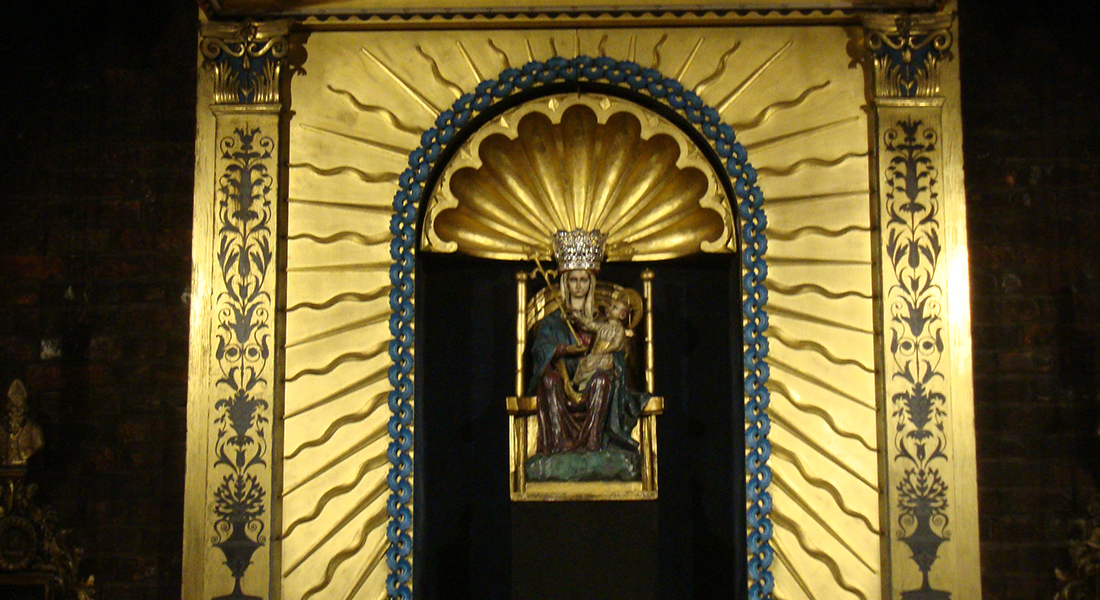HERILIGION: The Heritagization of Religion and Sacralization of Heritage

PROJECT IS COMPLETED
Project period: September 2016 - March 2020
HERILIGION seeks to understand the consequences of the heritagization of religious sites, objects and practices which may not have been considered heritage before, and especially the relations between heritage and religious constituencies, and between different disciplines and management regimes; and the potential paradoxes between religious and secular sacralizations and uses.
What happens when religious sites, objects and practices are simultaneously considered heritage? Since World War II, cultural heritage is increasingly seen as defining identities and communities in times of change, and often what is now considered heritage was and still is seen as religious in nature and possibly sacred. Heritage, on the other hand, involves an explicitly secular gaze predicated on non-transcendant principles – historical, cultural, aesthetic. Heritagization might entail the sacralization of non-religious aspects of religious sites, objects and practices in a secular, immanent frame.
HERILIGION produces new insights which can be used to understand paradoxes and to manage and defuse potential tensions arising from such paradoxes, benefiting both religious and heritage constituencies in Europe. The research takes place at religious and heritage sites in Denmark, the Netherlands, Poland, Portugal, and the UK, or would focus on emerging practical heritage (so-called intangible cultural heritage) in these countries.
HERILIGION in Denmark
The Danish project involves field research in (partly) religious heritage sites in Denmark, in particular the World Heritage Sites of Roskilde Cathedral and the Jelling Mounds, Runic Stones and Church under the joint auspices of the National Museum of Denmark and the University of Copenhagen, and under the joint supervision of Dr. Ulla Kjær of the National Museum and Professor Oscar Salemink.
HERILIGION in Netherlands
The Dutch project involves field research focussing on a wide variety of performances of passion plays in the Netherlands: the successful televised 'The Passion', the more classical annual performance of Bach's Matthew Passion and the passion plays in Tegelen which take place every five years, in particular. The Dutch project is housed at the Meertens Institute of Royal Netherlands Academy of Arts and Sciences, the research was executed by postdoctoral researcher Ernst van den Hemel in collaboration with principal investigator Irene Stengs and in joint affiliation with Museum Catharijneconvent.
HERILIGION in Poland
The Polish project is based on field research conducted in the city of Kraków in southern Poland. In our approach, we juxtaposed the stereotypical, popular and general image of Kraków present in Polish national discourse as well as in tourist industry and heritage policy (on regional, national and global levels) with the internal 'life of the city', local experiences and grass root activities that emerged in relation to certain selected religious-heritage sites, objects and practices.
The Polish project is housed at the Institute of Ethnology and Cultural Anthropology, Jagiellonian University in Kraków and was supervised by the principal investigator, Anna Niedźwiedź.
HERILIGION in Portugal
The Portuguese project focuses on the heritagization processes connected with four heritage sites that highlighted the multifarious intersections between secular and religious dimensions of heritage: (1) Sintra, a UNESCO World Heritage sites that is increasingly reclaimed by several religions as a sacred place; (2) Fátima, the second most important Marian pilgrimage site in Europe that is emerging as a location for inter-religious dialogue (3) Mértola: an archaeological site used by governmental and non-governmental organizations as a key symbol for Portugal’s Islamic past and the necessity of peaceful cohabitation and tolerance; (4) Mouraria, the Moorish neighbourhood in Lisbon which was celebrated as a place of cultural and religious richness. The project involves the cooperation with the National Museum of Ethnology and the Museum of Lisbon.
HERILIGION in the United Kingdom
The UK project is examining the heritagization of medieval parish churches in East Anglia. By using as its case study ‘The Abbey Experience’ (2012-present), a heritage project based at the medieval parish church of Wymondham, Norfolk, the UK team examines how a large-scale community heritage project has transformed the church both physically and ideologically. The research was being carried out by senior research associate Kristi Bain and supervised by principal investigator Ferdinand de Jong.
The five work packages is carried out in Denmark, the Netherlands, Poland, Portugal and the UK in ways designed to capture the diversity of beliefs, narratives, emotions and practices around religious heritage sites.
Read more about the research in the specifik countries here.
Project Leader
Oscar Salemink
Other participants
- Ferdinand de Jong
- Anna Niedźwiedź
- Maria Clara Saraiva
- Irene Stengs
- Ernst van den Hemel
- Clare Haynes
Funded by


HERILIGION is funded by Humanities in the European Research Area and the European Union's Horizon 2020 Research and innovation programme
Project: Heritagization of Religion and the Sacralization of Heritage in Contemporary Europe (HERILIGION)
Project Leader: Oscar Salemink
Start: September 2016
End: March 2020
